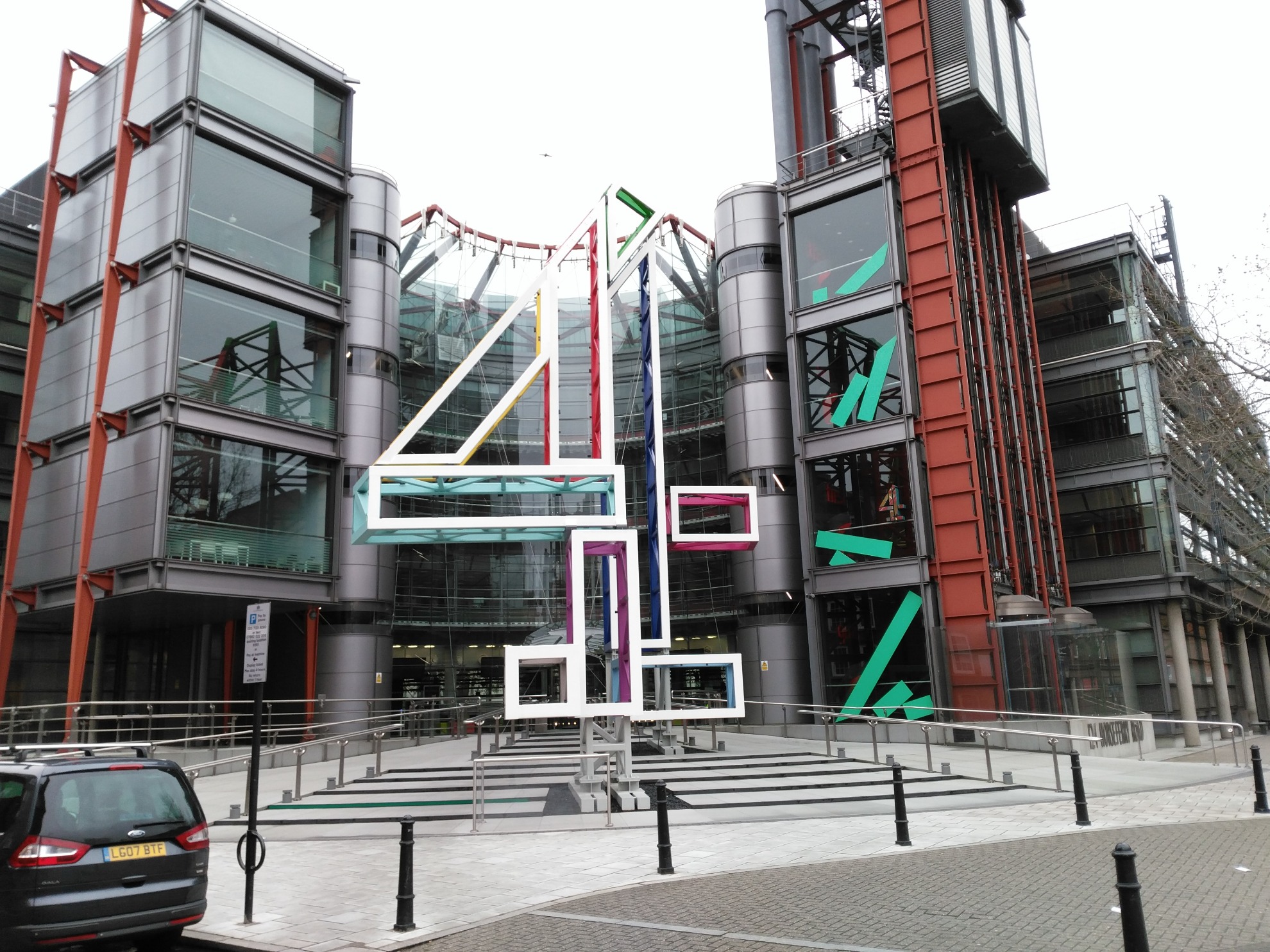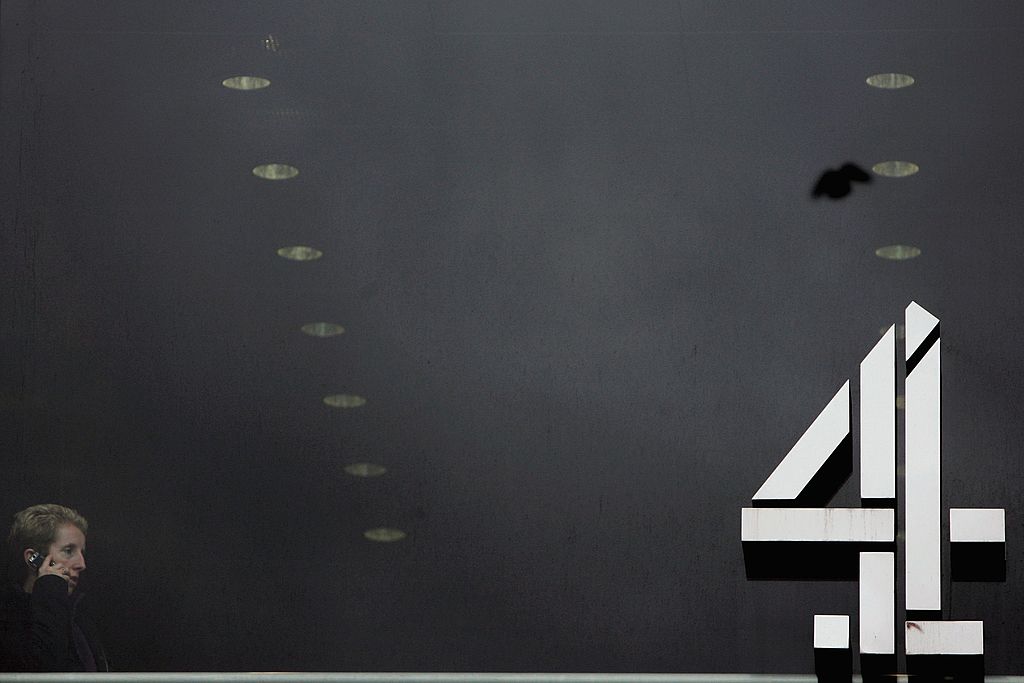
The decision to privatise Channel 4 is going to benefit the government and that’s why they’re doing it. That it will hurt brave, innovative British television is besides the point.
Last week, Channel 4’s It’s A Sin led the way with 11 Bafta nominations. The show, set during the 1980s Aids crisis, told a moving, heartfelt, previously unbroadcast side of LGBTQ+ history in this country. TV critic Scott Bryan described It’s A Sin as “the most moving drama of the year, and, certainly for me, of my entire life”. The critical acknowledgement reinforced the already known benefits of independent, pioneering British television.
The week before, I saw Jon Snow accept the Harvey Lee Award for Outstanding Contribution to Broadcasting at the Broadcasting Press Guild Awards lunch. His speech, and the montage that preceded it, detailed a career spanning continents and global crises, offering a humanity not always visible on broadcast news. Seeing a young Snow in action again reinforced the necessity of first-hand, unapologetic, sometimes opinionated reporting. He has been the face of Channel 4 News for 40 years – a programme that goes to great lengths, nightly, to hold the powerful to account.

Perhaps the most disheartening part about the decision to privatise Channel 4 is how unsurprising it is. The government will gain from its sale, and – as we’ve seen time and again – that is all that really matters. This is a cabinet, run by a prime minister, where loyalty is valued above all else. Devoid of virtue, rationale, competence or any kind of guiding moral principles, the present Tory government is beholden to self-interest, and increasingly self-preservation, alone.
Nadine Dorries – the uncultured Culture Secretary ultimately overseeing the new Media Bill – is the rot personified. Wildly out of her depth, she embarrassed herself last year by wrongly claiming Channel 4 is publicly funded, and embarrassed herself again earlier this year on Channel 4, when pressed by Krishnan Guru-Murthy over Boris Johnson’s false Jimmy Saville allegation against Labour leader Keir Starmer.
Astonishing exchange between Krishnan Guru-Murthy and Nadine Dorries on Boris Johnson glibly chucking Jimmy Savile into his partygate defence pic.twitter.com/GdeeZJ1b83
— Graeme Demianyk (@GraemeDemianyk) January 31, 2022
It is the government’s own shortcomings that have inspired the Channel 4 decision. It’s revenge for Channel 4 constantly posing questions that they don’t want to answer. In an other word – accountability.
Of course, the cabinet claims Channel 4’s ownership structure has become a “straitjacket”, rendering it ineffective and dated, incapable of keeping up with Netflix and others in the modern streaming market. In actuality, Channel 4 has emerged from the pandemic posting record revenues, and is a fully sustainable business as an independent broadcaster.
Such is its value, rumours are that the channel could fetch as much as £1 billion, with prospective buyers said to include ITV, Sky and Paramount – the US media company that owns Channel 5. This would be a huge, and admittedly much-needed, injection of cash for the government. But is it really worth sacrificing a British cultural institution for?
Advocating for the sale, government sources said a private Channel 4 would have greater access to capital, the ability to make and sell its own programmes, as well as to invest in overseas expansion.
Britain’s media regulator Ofcom will play an important role in approving a new owner. The person in charge of the supposedly neutral adjudicator is Tory peer Lord Grade of Yarmouth, who was recently been made chairman of Ofcom and will now be tasked with clinching a sale by early 2024.

Channel 4 was set up in 1982, during Margaret Thatcher’s tenure, and tasked with turning the money it made from advertising into innovative, independent British programming.
Already, the move has seen resistance from a number of senior Tories. Former deputy prime minister Damian Green described the decision as “very unconservative.” Jeremy Hunt described his unease at the decision, saying that although he is not against the privatisation of “big national monopolies”, he is pro competition.
“I think one of the reasons that we have a really healthy, vibrant media is because we give the BBC a very good run for its money when it comes not just to the big commercially successful programming, but also things like news and documentaries and Times Radio is very important in that respect. But I think Channel Four is as well. And I wouldn’t like to see that competitive pressure on the BBC reduced.”
Former Scottish Conservatives leader, Ruth Davidson, said, “Channel 4 is publicly owned, not publicly funded. It doesn’t cost the taxpayer a penny. It also, by charter, commissions content but doesn’t make [or] own its own.”
And then there was Julian Knight, a senior Conservative MP and chairman of the Commons digital, culture, media and sport committee. Without condemning the decision, he suggested that the government’s move to privatise Channel 4 was done in “revenge” for the station’s “biased” coverage of Brexit.
Now, elephant in the room time – is this being done for revenge for Channel 4’s biased coverage of the likes of brexit and personal attacks on the PM? The timing of the announcement 7 pm, coinciding with Channel 4 news, was very telling…
— Julian Knight MP (@julianknight15) April 5, 2022
The view of some of Channel 4’s stars was even stronger.
For clarity as some facts are being muddled : Channel 4 is state owned but commercially funded by ads and doesn’t get public money. A sell off requires MPs to vote for it. The editorial independence and funding of news can be ring fenced in a sale if govt wants (as sky news)
— Krishnan Guru-Murthy (@krishgm) April 4, 2022
Apart from all the documentary & film makers, most of us in comedy had our first TV gigs on @Channel4 before the BBC hired us. Someone else would definitely have been in Jonathan Creek and probably QI, if I hadn’t been on C4 first. It’s ours, why sell it? We must be really skint.
— Alan Davies (@alandavies1) April 5, 2022
Let’s just get this out of the way, LLL makes a fortune for C4, shows like mine are very unlikely to be axed, it’s news & current affairs, and cutting edge dramas which are likely to be thinned out. Profit will be king and the passion & inclusion of Channel 4 will be lost. https://t.co/8wPGn1fo2r
— Kirstie Allsopp (@KirstieMAllsopp) April 4, 2022
Cultural vandalism. For shame. https://t.co/U61e0oRRbL
— Sathnam Sanghera (@Sathnam) April 4, 2022


